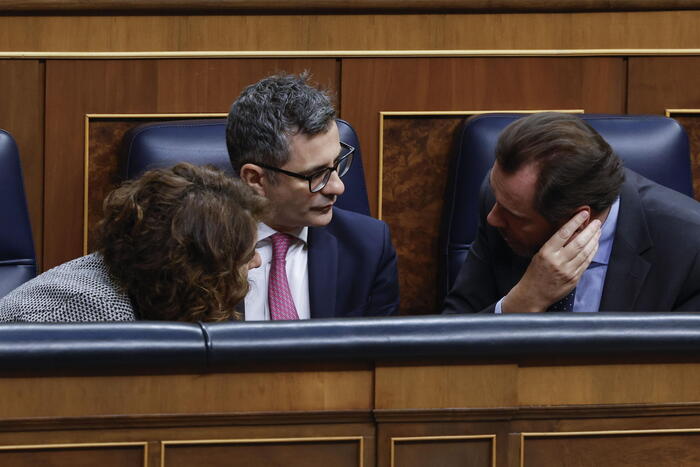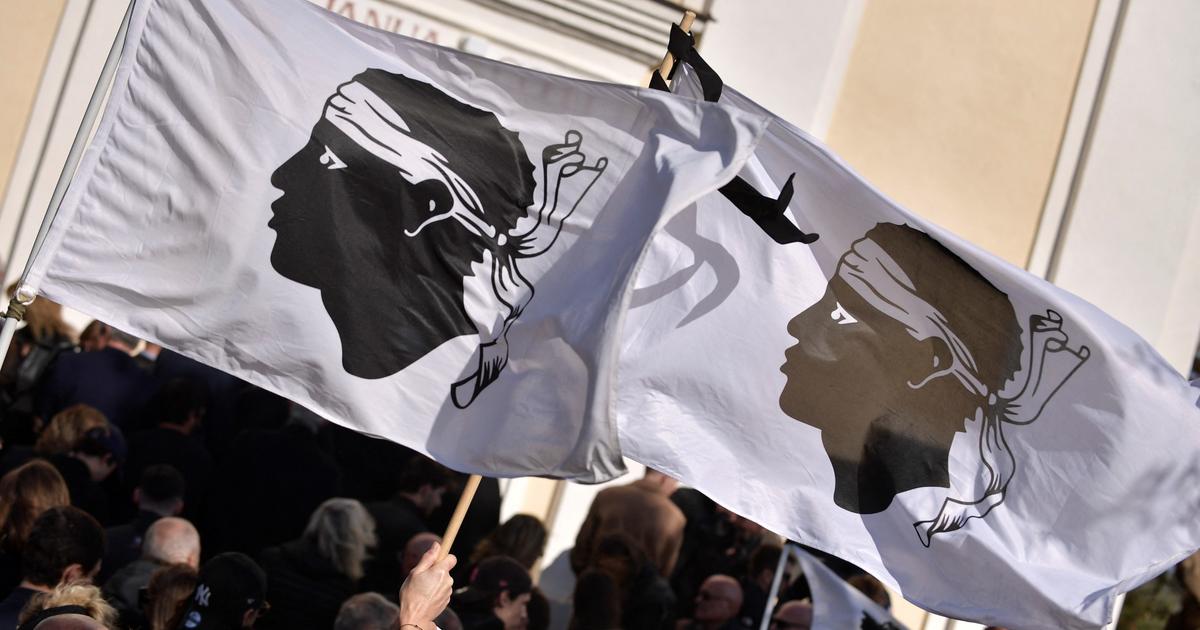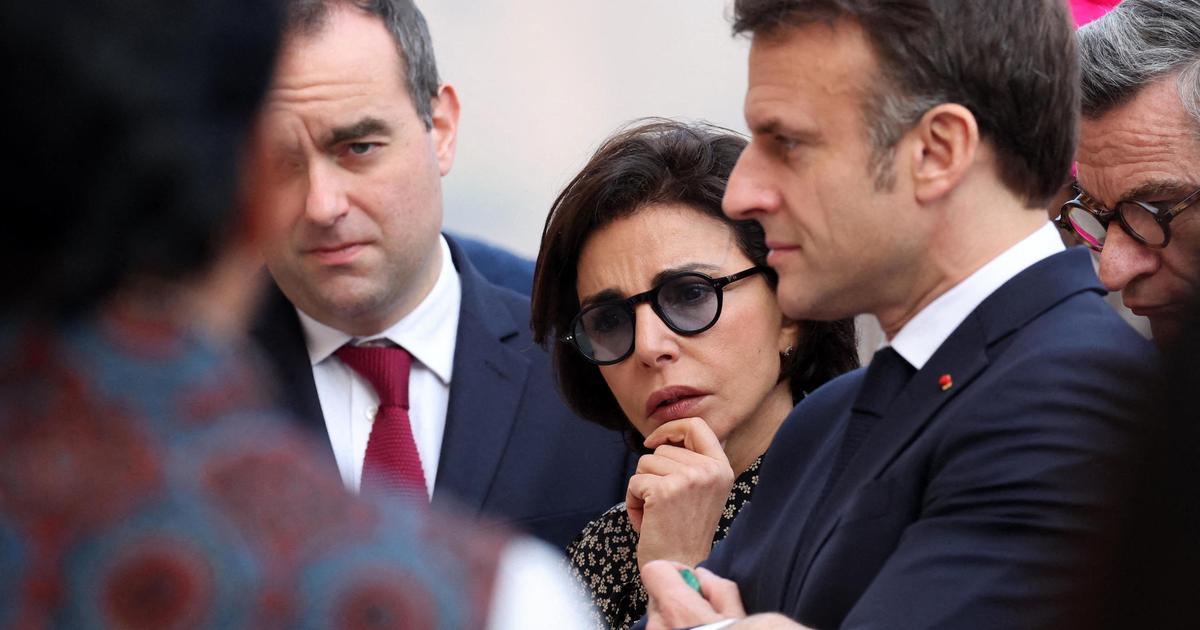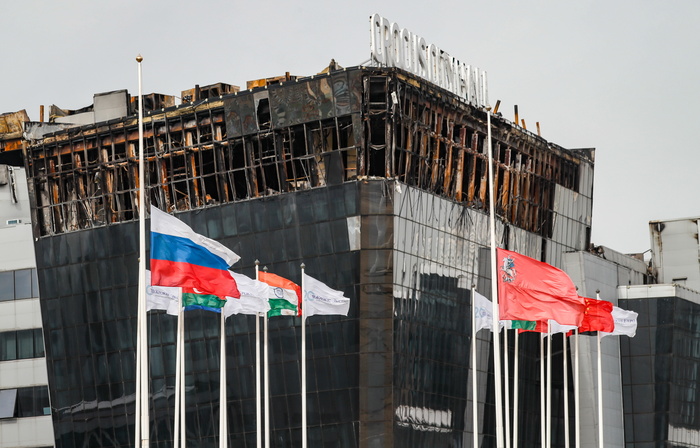column
We understood. That was the message of the most powerful men and women in the world. We will not repeat the mistakes of the past. We promise to keep our borders open. We will not build trade barriers, but seek to further liberalize world trade. This is stated in the Communiqué of the first G20 summit in Washington, which took place in mid-November 2008.
Today, the paper reads like a historical document from a distant past.
That's exactly eleven years ago. The global economy had just come to a halt as a result of the financial crisis. That there would be a global recession was inevitable. Now it was about limiting the damage. The then French President Nikolas Sarkozy and British Prime Minister Gordon Brown drummed the G20 together, a new forum that brought together the world's major economies.
Together they wanted to avoid the mistakes of the past. Unlike in the 1930s, when a financial crisis triggered a world economic crisis, which then resulted in a bitter trade war that further exacerbated and prolonged the crisis, this time the borders should remain open. In the Washington Declaration, the G20 set the principles for global cooperation.
Eric Feferberg / AFP
2008 G20 meeting in Washington: Coordinated action to save the economy
The forum has been quite successful for a few years. Thanks to concerted stimulus measures, the crisis of 2008 and 2009 was only brief, albeit fierce. A big economic confrontation did not take place. At the end of 2013, it was even possible to pass a major agricultural trade liberalization agreement signed by virtually all the countries of the world; The "Bali Package" (PDF) was the first deal under the umbrella of the World Trade Organization (WTO) - and it looks like it may be the only such agreement. For now the global scenario has changed completely.
Economically meaningless, politically attractive
In times of economic crisis, societies are prone to the logic of trade warfare: to save jobs, domestic industries are protected against foreign competition. At best, this will provide the respective country with short-term benefits that will be lost as soon as the trading partners react with countermeasures. As a result, the borders continue to close, the international exchange goes back.
Economically, protectionism is meaningless. Politically, on the other hand, it can be quite attractive - if the intentions are more important than the results: with restrictive measures, rulers can send signals to the local population to try everything to improve the lot of entire population groups. And if the situation worsens in the end, nationalist leaders can blame opposing foreign powers. Protectionism helps to poison international relations - as in the 1930s.
That the major states in the last major recession swore off this destructive logic, is the great merit of the G20 and its heavyweights US, EU and China. But the vows did not last forever. New nationalist leaders came to power: Xi Jinping in China, Narendra Modi in India, Donald Trump in the US, the Brexiteers in the UK, Shinzo Abe in Japan and several others.
It began a wave of protectionism - and in good times. Years before Trump entered the White House, clashes began with China over its heavily subsidized steel and aluminum industries. Other states then overdrawn China with punitive tariffs. Some emerging economies, such as India and Russia, started to protect some industries with tariffs. It was a pinstrike protectionism, uncomfortable but not particularly painful.
New escalation levels
It's different since the beginning of 2018. Donald Trump's confrontational trade policy and the uncertainties of Britain's exit from the EU internal market are leaving their mark on the global economy. This week, there is new evidence: On Tuesday , the US statisticians before new calculations on the US trade deficit before, on Friday followed by figures from German exports and foreign trade of China.
More at SPIEGEL +
The results are unlikely to be particularly pleasing: German and Chinese exports are expected to continue to decline, while the US trade deficit is likely to have grown. A destructive dynamic is underway, which has come to a halt at the moment because of the repeated Sino-US negotiations, but which can at any time reach new levels of escalation.
The traces that the tariff increases have already left in the global economy are obvious. Between the summer of 2018 and the summer of 2019 alone, new restrictions on a trade volume of around $ 800 billion entered into force, as the WTO calculated (PDF).
The import restrictions have long been real consequences. World trade has shrunk in recent months, according to the International Monetary Fund (IMF). The mood among companies is becoming increasingly gloomy. Global industrial demand stagnates; currently machines and plants, Germany's parade branches are affected ( Wednesday there's new numbers to order).
The export-oriented federal economy is already on the verge of recession. Industrial production has been declining for a year (look for new manufacturing figures Thursday ). Central Eastern Europe, whose industrial structures are strongly geared to Germany, should also be hit.
Even in the US, where the economy is still steaming after tax cuts in the previous year and interest rate cuts this year, companies are losing confidence in the future: since the onset of the hot phase of trade wars began in early 2018, corporate investment has declined significantly. as figures from the Federal Reserve Bank of St. Louis shows.
The main thing, the others are to blame
The currently fairly synchronized global downturn does not make it easier to resolve trade conflicts. If the tariff barriers are lowered even in relatively good times, it is to be feared that the conflicts will only increase in the next recession.
Such is the situation: a cascade of tariff barriers has triggered a downturn, which in turn favors protectionism.
The spirit of Washington has long since evaporated. In 2008, leaders of the world's major economies realized that they needed to act in concert - or risk falling back into the chaos of the past. At that time, they bought time by rescuing banks, setting up large stimulus programs, organizing cash infusions from central banks, and keeping the borders open.
So much cooperation is hardly conceivable today. The next big recession could therefore be ugly. Not only because nationalist leaders have come to power in many G20 countries, but also because the economic policy ammunition has become scarce:
- The central banks have already cut interest rates to zero (and lower) and bought up trillions of euros, dollars, yen and pounds of securities. How effective further monetary easing exercises can be is questionable.
- The indebtedness of many states is much higher than in 2008 (Germany is a rare exception in this respect). The renewed large-scale debt-financed stimulus packages pose highly uncomfortable questions of solvency.
- Companies are also pushing enormous liabilities in many countries. Whether in China, France or the USA - in many places, the debt is higher than in 2008. Lending banks from the chain and increasing debt in order to stimulate demand is hardly possible under these conditions.
If national economic policy instruments have become largely ineffective, international cooperation will also become more difficult. The sooner governments will resort to the old protectionist crowbars: tariffs and other import restrictions, devaluation of currencies.
Such an escalation is clearly economically harmful. But politically it can come just right for nationalist leaders. The main thing, blame for the misery are the (each) other.
The main economic events of the upcoming week
Monday
Berlin / Zwickau - cars and such - top meetings of the federal government and the automotive industry on electric mobility. On the same day in Zwickau: Volkswagen starts production of the electric car ID.3. With: Merkel and VW boss Diess.
Jurmala - Corruption in the Governing Council of the ECB? - Commencement of lawsuit against the Latvian Governor Rimsevics, who is also a member of the Council of the ECB. He is accused of collecting bribes. asked for and accepted them. The central bank chief rejects the allegations.
Report Season I - Figures from Siemens Healthineers, Telefonica Germany, Ryanair, Uber, Under Armor.
Tuesday
Washington - Red Numbers - New US Trade Balance Data. Not unlikely that the deficit has increased again - the strong dollar and the dynamic consumer demand favor the import, despite all Trump's tariffs.
Karlsruhe - Promote, demand, sanction? - The Federal Constitutional Court ruling on whether Hartz IV recipients who reject job offers, benefits may be reduced.
Report Season II - Figures for Schaeffler, Vonovia, Hugo Boss, Evonik, Siemens Gamesa, Intesa Sanpaolo, Telefonica, Endesa, Adecco, Scania.
Wednesday
Frankfurt - Key Industry - The German Engineering Federation (VDMA) is presenting new figures for new orders.
Report Season III - Figures from BMW, Wirecard, Adidas, Hannover Re, Axel Springer, Bertelsmann, RTL, Axa, Societe Générale, Alstom, Banca Montei dei Paschi di Siena.
Thursday
Brussels - The Nineteen - Meeting of Euro-Finance Ministers: It will be about investment and innovation - and the selection of the new ECB board member (the German Lautenschläger had resigned, the successor is the economy Schnabel).
Reporting season IV - Siemens, Deutsche Telekom, Munich Re, Lufthansa, Commerzbank, ProSiebenSat.1, Fielmann, Zurich Insurance, Toyota, Walt Disney, ArcelorMittal, ACS, UniCredit, Veolia Environnement, Telecom Italia, Generali.
Friday
Beijing / Wiesbaden - Dull prospects - New figures from Chinese foreign trade and German exports.
Report season V - business figures of Allianz, EnBW, Crédit Agricole, Honda.
Sunday
Madrid - Finally stable conditions? - Another parliamentary election in Spain. Prime Minister Sánchez still governs only because a majority in parliament could muster.









